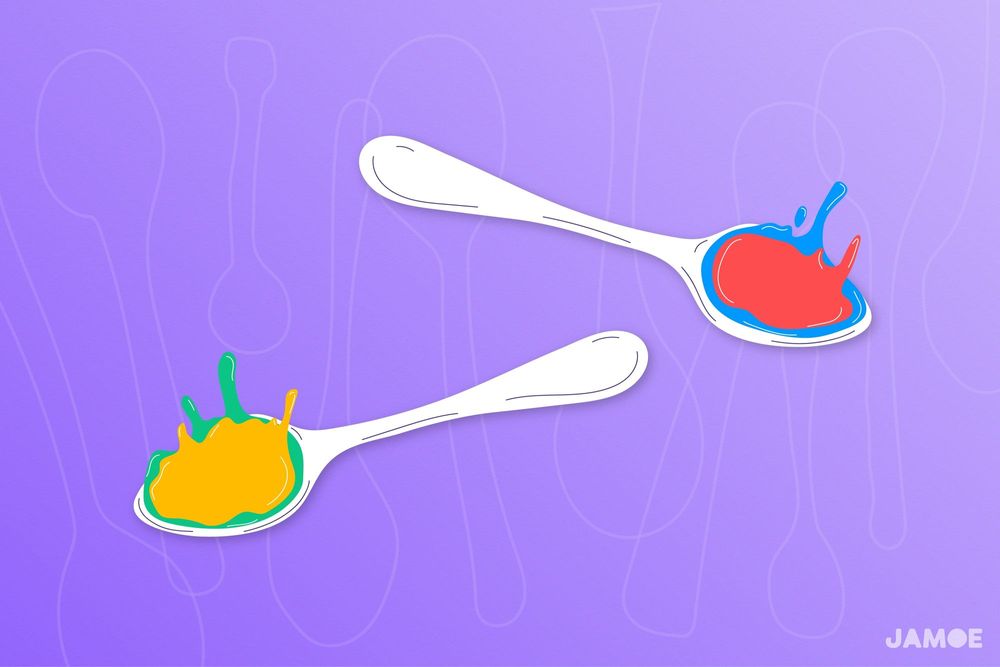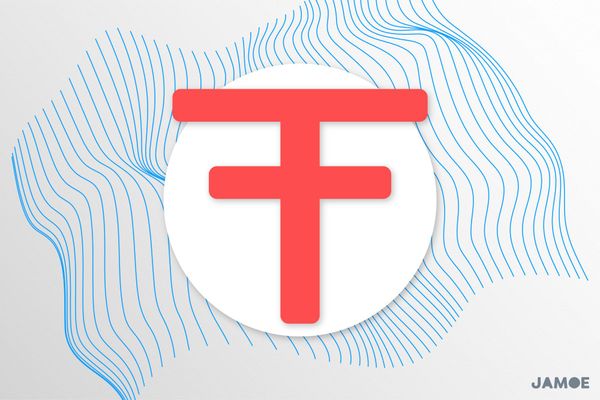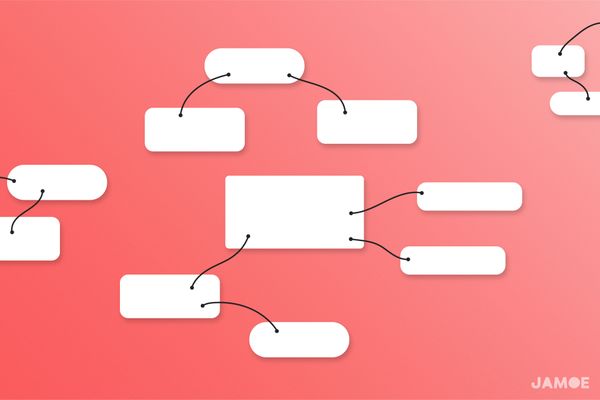Temptation Bundling: Beating procrastination at its own game
At a glance
- Based on the reader question: Is there a way to get through the more miserable tasks on my to-do list? – Tom, France
- By using Temptation Bundling, motivate yourself to get through the tasks you should be doing — but aren’t.
- The technique combines a task you should be doing with the one you want to be doing, e.g. cleaning and listening to music.
- Use it as a stepping stone for learning to crave the shoulds as much as the wants, while prioritising long-term rewards over procrastinating.
Introduction
‘A spoon full of sugar helps the medicine go down’, sings Mary Poppins in the Disney classic. While Ms Poppin’s words are well-tuned and wise, they’re also endorsed by behavioural economists.¹
Behavioural economists focus on the often irrational ways we make decisions and how we can use these shortcomings to our advantage. In this case, we can use our love of instant gratification (sugar) as motivation to act in ways that serve our long-term success (medicine).
The technique is called Temptation Bundling.
What is Temptation Bundling?
Temptation Bundling is when we combine a WANT with a SHOULD.
We want the sugar. We should take the medicine. Therefore, the temptation bundle is a spoon filled with both.
Our wants are a symptom of our mind’s desire for instant gratification: new clothes, chips, checking our messages, chasing squirrels, biscuits, refreshing Reddit (again).
Our shoulds, however, represent the part of our mind that cares about our long-term interests. Investing in the long-term can unlock far richer rewards, but doing so comes with a catch.
Our efforts don’t result in an instant reward, making long-term tasks uncomfortable and unexciting. Hence, we avoid them like a gaggle of aggressive geese.
Temptation bundling works by giving us the best of both worlds. We can be soothed and satisfied by the metaphorical sugar while making the necessary steps towards realising the long-term benefits of what we should be doing.
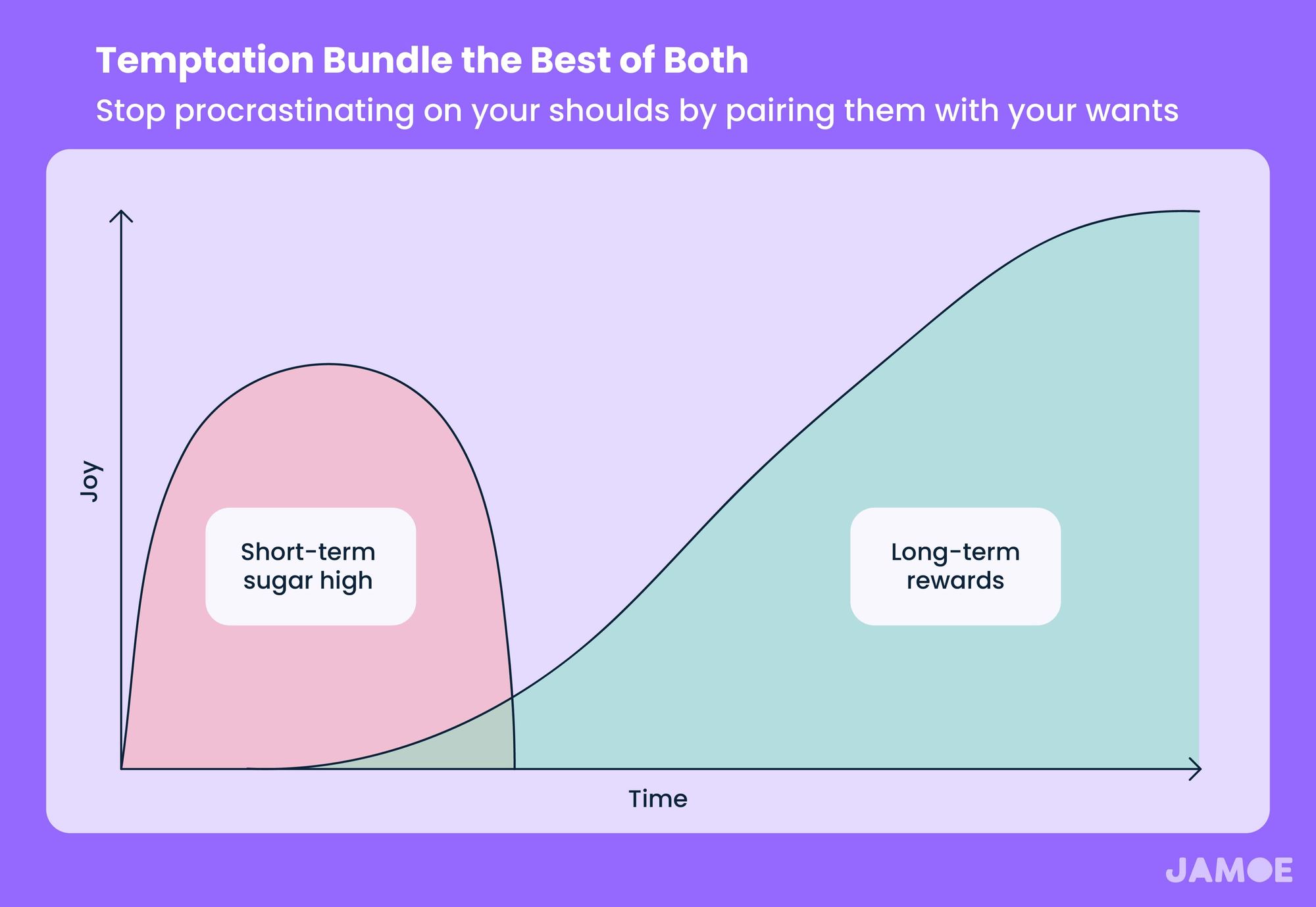
Creating temptation bundles
You can do this in your head, though we recommend using some paper:
- Wants: Make a list of the things you want to do.
- Shoulds: Make a list of the things you should do.
- Compliments, not conflicts: See which wants and shoulds you can combine without causing a conflict, e.g. listening to a podcast while practising the drums doesn’t work. You’re using the same mental resources. However, listening to a podcast while running is just dandy.
We recommend experimenting with one temptation bundle. After seeing the technique’s benefits in action, you can recalibrate your bundle to make it even more motivating.
Thinking of items for your list
When listing our wants, it’s easier to start by thinking of all the things we do to procrastinate. Often, these are sources of instant gratification.
Our shoulds are the opposite: they’re the tasks we’re avoiding by procrastinating.
After talking to our readers, we’ve curated some real-life bundles to get you started:
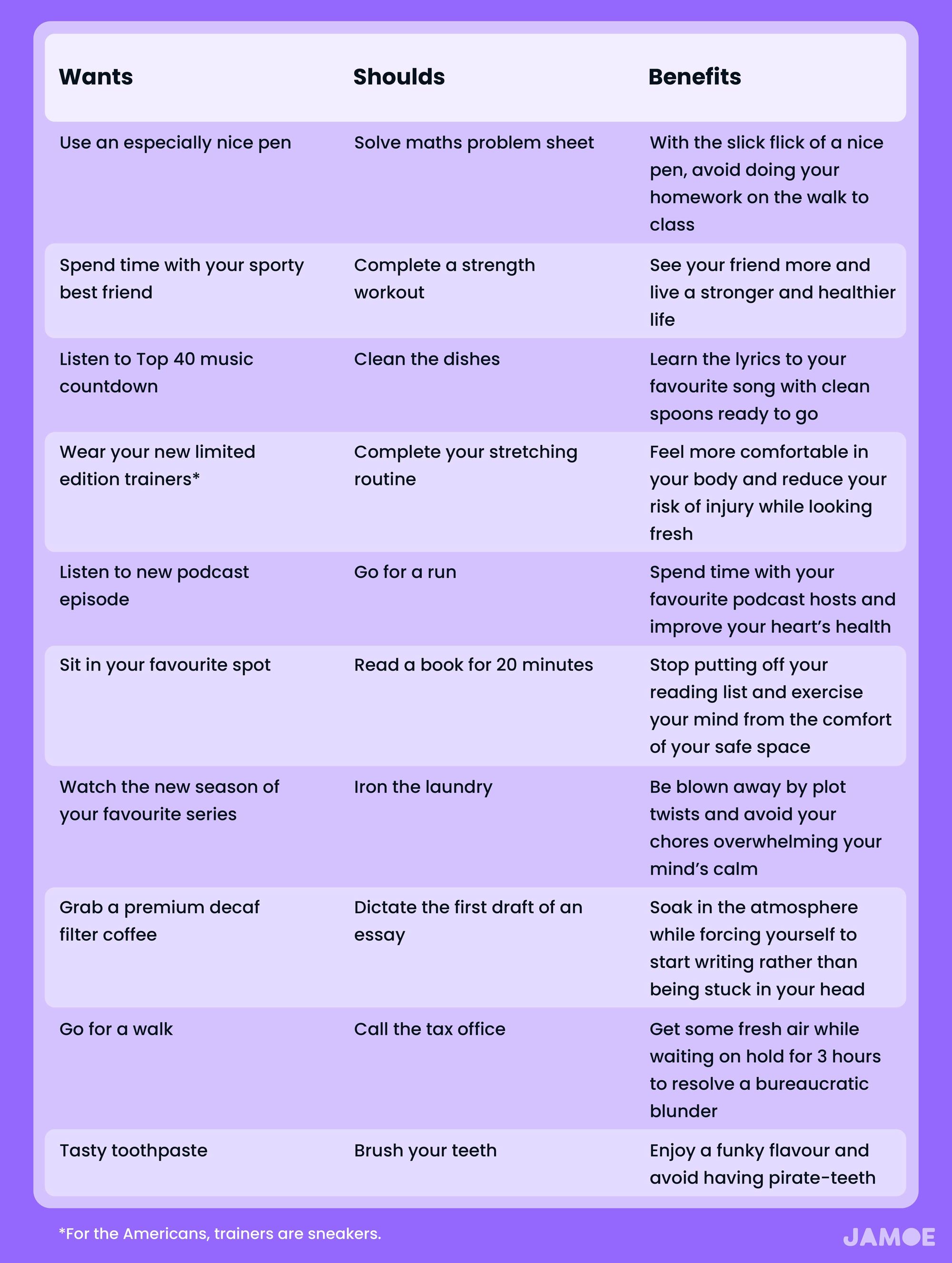
Make cheating on your bundles harder
How do we prevent ourselves from doing what we want without doing what we should? Well, with some forward planning and some self-control. We’ve shared our framework for overcoming temptations in Self-control is Overrated and How to Be Disciplined by Design.
Both pieces look at designing our environments to promote healthier habits by removing temptations. The Netflix Cycle is a great example. The brain-child of engineering student Ronan Byrne, it’s an exercise bike that only plays Netflix if you maintain a minimum speed.²
Byrne is calling his invention exercise-powered entertainment, and it’s a great example of how you can make cheating on your Temptation Bundles much harder.
Turning your shoulds into wants
If our shoulds were characters in a story, they’d be the ones throwing themselves to the ground, pleading, “Just give me a chance!”. While dramatic, they’d be justified. We often give up on our shoulds far too soon.
Like with farming, our efforts will only bear fruit with time. We must defer gratitude, but we usually can’t be bothered because we don’t think it’ll be worth it.
However, when temptation bundling, our impatience is distracted by the instant gratification offered by our wants. That makes it more likely we’ll persevere, defer gratitude, and witness the long-term rewards of putting effort into our shoulds.
Once we experience these benefits, we won’t want to give them up. That change marks the moment when our shoulds have turned into wants.
Never going to give the shoulds up
The benefits we won’t want to give up will vary depending on the habit, but to offer a few examples:
- Exercising → We won’t want to give up feeling stronger and fitter.
- Making home-cooked meals → We won’t want to lose the health benefits.
- Journaling → We won’t want to lose our sense of calm.
- Reviewing our flashcards → We won’t want to give up our improved memory.
- Resetting our workspace each night → We won’t want to return to being furious that we have no idea where anything is when getting things done.
Balancing instant and delayed gratification is part of building a Portfolio of Gratitude and developing a bias for the long-term over the short-term.
Fortunately, Temptation Bundling allows us to overcome the hardest part – getting started. Once we’re in the groove, all that’s left is to protect, maintain and enjoy the fruits of our new habits.
Footnotes
[1] While the practice of temptation bundling is old, the term was coined by the economist Katherine L. Milkman in her 2014 research paper. In the study, she and her colleagues looked at ways to increase gym attendance. They found attendance was 51% higher for participants that could only listen to their favourite audiobooks at the gym compared to the control group that weren't given any audiobooks.
[2] You can check out the Netflix Cycle, or Cycflix here. The hack gets around the problem of self-control, as you don't need to impose the temptation bundle; it's pre-bundled. That makes it impossible to cheat, as it's designed so you can't watch Netflix without cycling. These sorts of bundles are the best for keeping ourselves honest.

